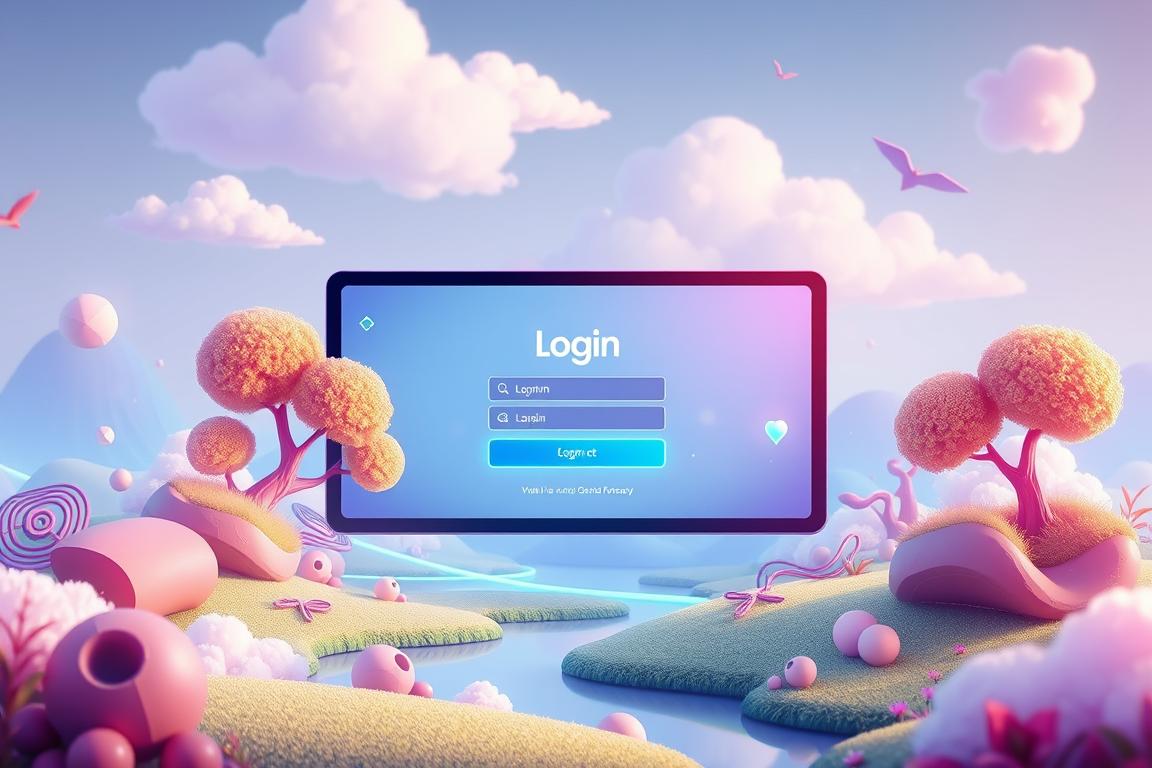Are you seeking a digital haven for the younger generation, a space that balances entertainment with education and safety? Navigating the online world for children requires a delicate approach, one that prioritizes both enriching experiences and robust protection.
The digital landscape offers a plethora of opportunities for children to learn, explore, and connect. However, it also presents potential risks. Platforms designed for young users often incorporate features aimed at mitigating these risks, providing a controlled environment where children can engage with age-appropriate content and interact with others. These platforms typically include educational games and resources, fostering a fun and engaging learning experience. The goal is to create a safe space where kids can learn and have fun while staying protected.
Parents and educators play a crucial role in guiding children through this digital world. By understanding the features of these platforms, utilizing parental controls effectively, and maintaining open communication, adults can ensure children make the most of the enriching experiences they offer. These platforms aim to provide a secure environment where children can explore, meet others, and develop essential digital literacy skills. If you're trying to access a specific platform but finding it challenging, don't worry. This article provides guidance on the login process, troubleshooting common issues, and offers tips for secure access. Remember, a thoughtful approach can transform screen time into a valuable learning opportunity.
One such space, often referred to as "young paradise," has gained traction, particularly among younger audiences. While specific details about the platform's features and functionality may vary, the core concept remains the same: a curated online environment tailored to the interests and needs of children. This might include interactive games, educational content, and opportunities for social interaction, all within a framework designed to prioritize safety and age-appropriateness.
The appeal of such platforms lies in their ability to provide a sense of community and belonging. Children can connect with peers, share their interests, and explore new ideas. However, it's important to approach these platforms with a discerning eye. Parents and educators should familiarize themselves with the platform's features, including its privacy settings, content moderation policies, and reporting mechanisms. Open communication with children about their online experiences is crucial. Encourage them to share their experiences, ask questions, and report any concerning behavior. Remember, the goal is not to restrict access entirely, but to empower children with the knowledge and skills they need to navigate the digital world safely and responsibly.
For those encountering difficulties accessing a specific platform, the login process can sometimes seem complex. Here are some general tips to help troubleshoot common issues:
- Verify Your Credentials: Double-check that you are entering the correct username and password. Pay close attention to capitalization and special characters.
- Check Your Internet Connection: Ensure that you have a stable internet connection. A weak or unstable connection can prevent you from logging in.
- Clear Your Browser Cache and Cookies: Sometimes, cached data can interfere with the login process. Clearing your browser's cache and cookies can often resolve the issue.
- Contact Support: If you are still unable to log in, contact the platform's support team for assistance. They can provide specific guidance and help you troubleshoot the problem.
Remember that the digital world is constantly evolving. New platforms emerge, and existing platforms update their features. Staying informed and adaptable is key to ensuring a positive online experience for children. Furthermore, be mindful of the potential for misinformation and online bullying. Teach children how to identify unreliable sources of information and how to respond to online harassment. Encourage them to report any inappropriate behavior to the platform's moderators and to a trusted adult.
The concept of "paradise," whether online or offline, often conjures images of idyllic settings and carefree experiences. The "young paradise" platforms are often marketed with a similar allure, promising a safe and engaging space for children to explore and connect. However, it's essential to maintain a balanced perspective. The digital world is not without its challenges, and vigilance is always necessary. The focus should always be on providing enriching experiences that are safe.
In the context of entertainment and social media, the term "paradise" can be used in various ways. On platforms like TikTok, videos tagged with phrases like "young paradise 5 17 invite" and similar terms suggest discussions and communities built around specific games or groups. These could be related to the "club penguin private servers" or any similar kind of private online community.
For the record, they were taking credit for the solver (by leitongrey), the plugin (by mienna), and the secret project (it's a website since we went public about it), and threw a babyrage tantrum when ownership wa.
Remember, when exploring these spaces, always prioritize safety, privacy, and age-appropriateness. It would be a waste of time like minsu\u2019s and jinyoung\u2019s second date. Nobody wants to watch unwanted dates.
| Feature | Description |
|---|---|
| Educational Games and Resources | Interactive games and learning materials designed for children. |
| Parental Controls | Features allowing parents to monitor and manage their children's activity. |
| Safe Social Interaction | Opportunities for children to connect with peers in a moderated environment. |
| Age-Appropriate Content | Content filtering and curation to ensure suitability for the target age group. |
| User-Friendly Interface | Designed to be easily navigated and understood by young users. |
| Reporting Mechanisms | Tools for users to report inappropriate behavior or content. |
| Privacy Settings | Options to control the sharing of personal information. |
This table provides a general overview, but the specifics will vary depending on the platform. It is crucial to read the platform's terms of service and privacy policy to understand how it protects children's data and ensures their safety.
The importance of parental involvement cannot be overstated. Actively engaging in children's online experiences is essential. This includes:
- Setting clear guidelines: Establish rules about screen time, the types of content that are allowed, and the people with whom children can interact online.
- Regularly reviewing activity: Monitor children's online activity to ensure they are adhering to the established guidelines and are not exposed to inappropriate content or interactions.
- Discussing online safety: Talk to children about the risks of the internet, such as cyberbullying, online predators, and sharing personal information.
- Using parental controls: Utilize the parental control features offered by the platform or your devices to restrict access to certain content and monitor online activity.
- Encouraging open communication: Create a safe space where children feel comfortable sharing their online experiences and asking questions.
The challenges associated with these platforms are undeniable. There can be difficulty verifying the age of all users, the potential for exposure to cyberbullying or inappropriate content, and the risk of excessive screen time. However, by addressing these challenges with a proactive and informed approach, parents and educators can help children harness the many benefits of these platforms while minimizing the potential risks.
For those interested in further exploration, resources such as the Common Sense Media website offer reviews and ratings of various platforms and provide guidance on online safety. Additionally, government agencies and child advocacy groups often offer valuable information and resources for parents. Staying informed and adapting to the changing digital landscape is critical in creating a positive and safe online experience for children.
The discussion about private servers of club penguin and other such communities suggests a desire for nostalgia and a return to perceived simpler times. "Well now, if you\u2019re wantin\u2019 to get into that young paradise, it\u2019s real simple, don\u2019t worry," is a sentiment many people share about accessing a particular community or platform. "I ain\u2019t much of a techie myself, but i can tell ya, once ya know the ropes, it ain\u2019t hard at all," is a reassuring message for newcomers, emphasizing approachability and ease of use.
The exploration of private servers offers a chance for communities to connect. One link to share everything you create, curate and sell across ig, tiktok and more.
Ultimately, the goal is to create a positive and safe online experience for children. This requires a combination of parental guidance, platform features, and open communication. By working together, parents, educators, and platform developers can help children explore the digital world in a way that is both enriching and secure.
For the record, they were taking credit for the solver (by leitongrey), the plugin (by mienna), and the secret project (it's a website since we went public about it), and threw a babyrage tantrum when ownership wa. There could be several factors in play when it comes to the golden bachelorette messing with bachelor in paradise. One is there is only so much space on abc's schedule year round for bachelor shows. Abc had space for golden bachelor and bachelor in paradise last fall because of the writer's strike.
The evolving landscape of digital spaces for children underscores the need for ongoing vigilance and a proactive approach. The term "young paradise" can be associated with a desire for something more fulfilling than reality and an alternative for those that didn't experience the best years of the 2010s. As digital environments continue to change, staying informed and engaged will be essential in ensuring children's safety and well-being. The aim is to give kids a safe place to explore and meet others.


